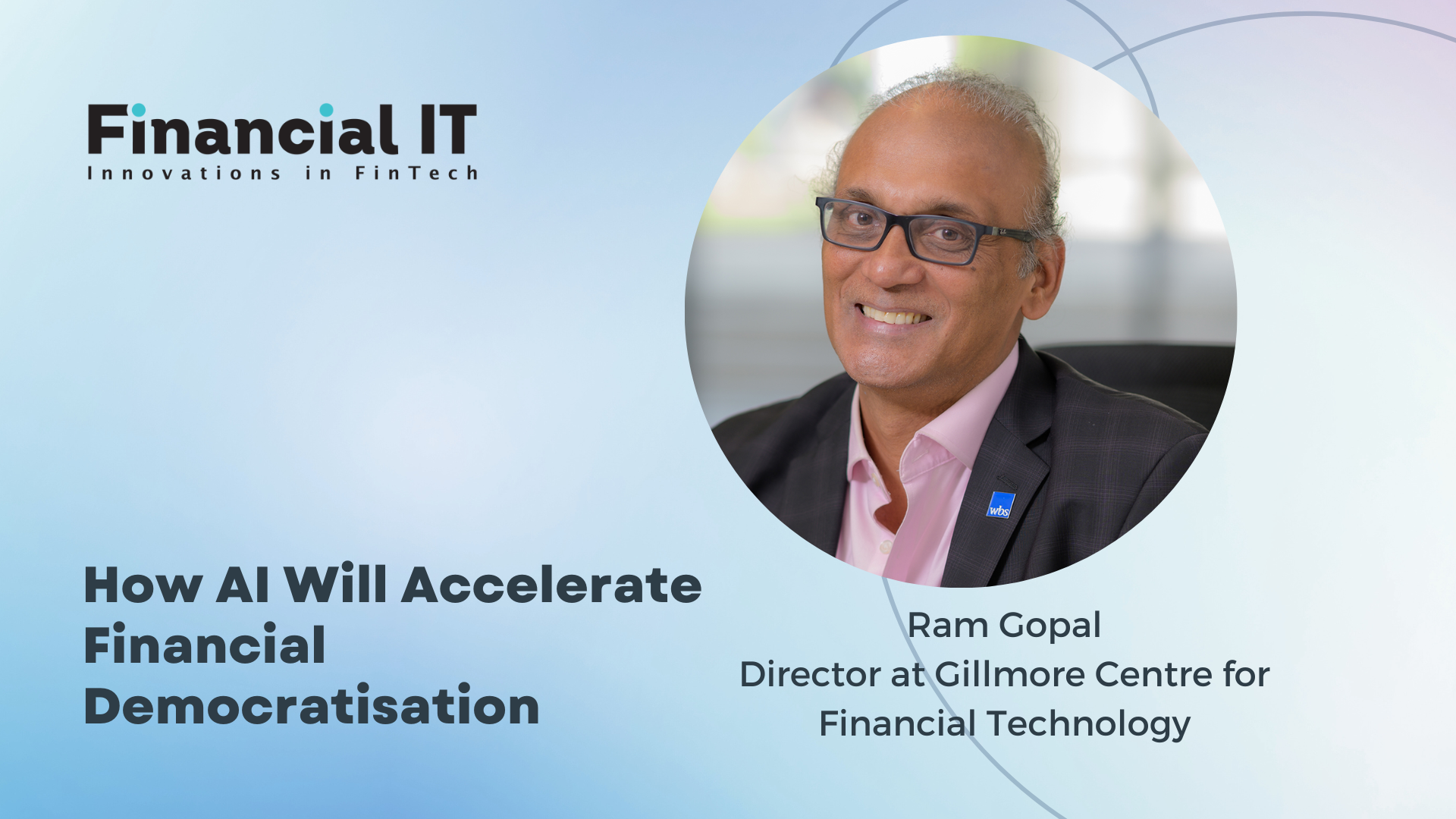How AI Will Accelerate Financial Democratisation

- Ram Gopal, Director at Gillmore Centre for Financial Technology
- 01.08.2023 02:00 pm #AI
Fintech has seen huge strides in financial democratisation, including financial services designed for the unbanked or underbanked, delivered by mobile phones.
The revolution against traditional banking, and the embrace of fintech, have been driven by a combination of mobile phones that put high levels of computing power in the hands of individuals, the invention of cryptocurrencies, and the job losses among young techies, who became keen to create an alternative to traditional financial institutions after the 2008 financial crisis.
A great example is M-PESA, which is used by more than 51 million customers across seven countries in Africa, allowing users to send and receive money, make payments, receive salaries, and get short-term loans.
Peer-to-peer lending also plays a large role in accelerating financial democratisation, facilitating lending between individuals on platforms like Funding Circle and Lending Club.
Furthermore, investments bots are helping people make investment decisions, while the use of social media, such as Twitter, has swung markets, with conversations or electronic word of mouth (e-WOM) a form of democratisation, pushing company prices sky high, such as Reddit’s WallStreetBets forum driving GameStop’s price irrationally high.
Will regulation put a stop to financial democratisation?
Scams are used by government, banks and regulators as an excuse to disadvantage democratisation, to rein in the power of individuals and companies that want to do their banking for themselves.
However, you can regulate away financial democratisation no more than you can regulate away risk.
While democratised finance does require some regulation, its focus should be on giving customers of democratised services a voice, as well as extending regulation to all jurisdictions in which transactions take place.
The future of democratised finance
There will be attempts to combine traditional financial institutions and new players offering wider opportunities. The Bank of England is just one of many central banks looking at offering a digital currency.
However, issues could arise with this coexistence.
All crypto transactions rely for security on blockchain technology, where no one institution or person has the key. With government digital currencies, however, the key will be held by the central bank.
That puts all an investors' information in the hands of the government. It is unlikely that a digital currency along these lines will work in countries like the UK, unless investors are given full control of the access to their data.
Becoming a financial advisor with AI
At present big companies dominate AI services, but soon individuals and SMEs could have AI assistants on their own computers, able to analyse their financial preferences, budget constraints and revenues and to suggest tailored financial recommendations.
This would make the service much cheaper and more individualised than consulting with financial advisors.
All leaders need a working knowledge of AI and what it can do; these days, it needs to be a part of the managerial toolkit.
Companies could introduce regular briefings from experts to update management on advances in AI, how it could help them make investment decisions quicker and cheaper, while helping to boost efficiency and profits.
Equally, CEOs should have firm policies about what generative AI such as ChatGPT is used for, because information entered via ChatGPT is stored in the cloud for 30 days. There needs to be better security and regulation around server-held information.
AI is rapidly changing every part of business, but it is the world of finance where it could have the biggest impact and bring true democratisation to financial services – leaders need to understand this just as quickly.
























